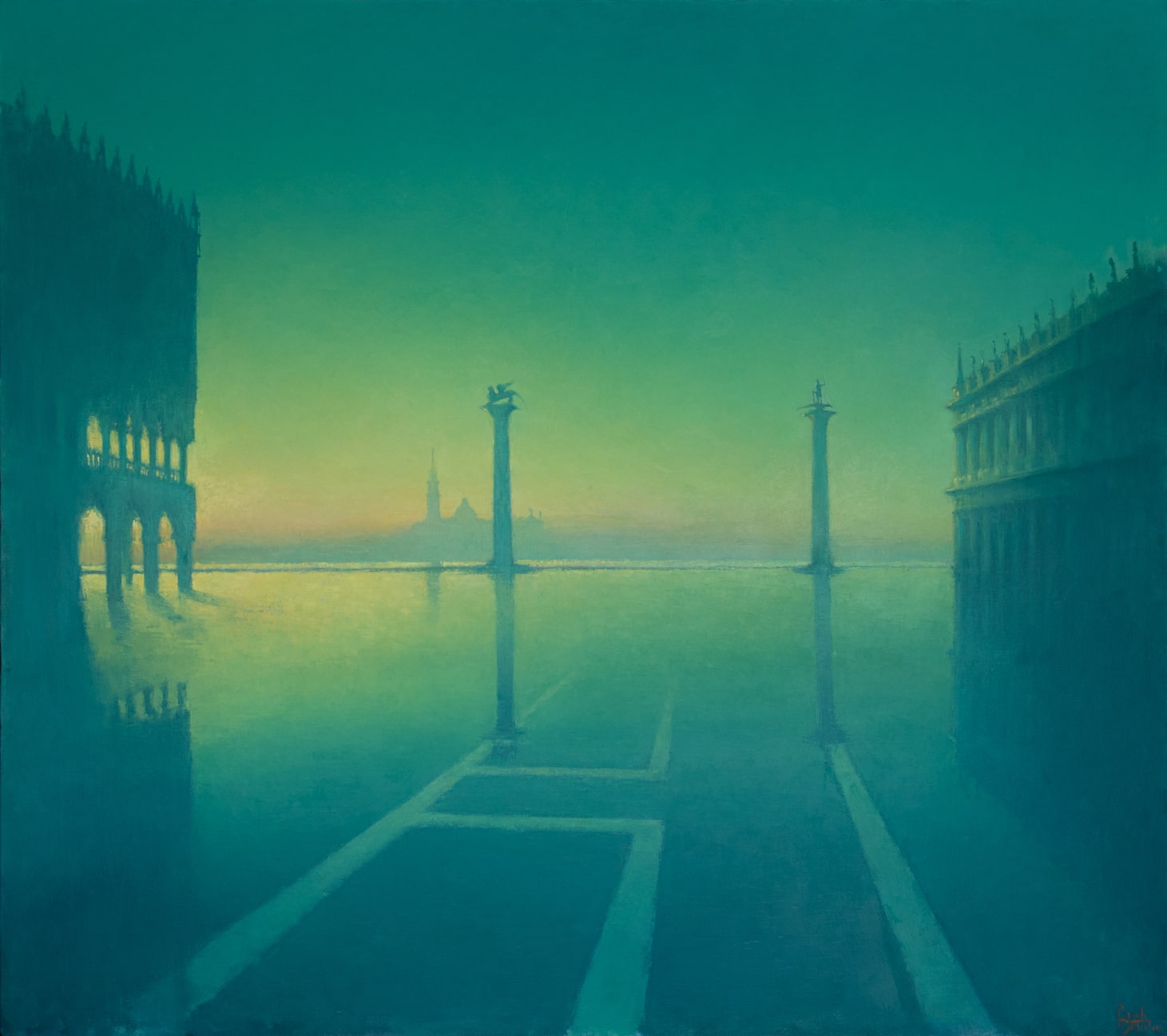Il teatro del mondo
Davide Battistin’s paintings portray an uninhabited Venice, immersed in surreal lights, as improbable as they are perfectly present in the unconscious of those who familiarise themselves with the astonishing atmospheres in which Venetians lead their lives.

davide battistin
Venice the stage of the world. Venice the city of stages, of permanent and ephemeral theatres, such as the sometimes elaborate ones that Venetians used to build on the occasion of major festivities.
Aldo Rossi’s Il Teatro del Mondo, the last ephemeral theatre, inaugurated during the 1980 Biennale, celebrated the city’s relationship with theatre and with its theatres, but also Venice’s vocation to be itself theatre.
Davide Battistin’s paintings portray an uninhabited Venice, immersed in surreal lights, as improbable as they are perfectly present in the unconscious of those who familiarise themselves with the astonishing atmospheres in which Venetians lead their lives. Battistin frees the city from the excesses that characterise it, powerfully focusing our attention on the essence of its being out of the ordinary.
With this new series of large paintings, the artist retraces the themes that are dear to him, imposing the iconic beauty of the views characteristic of his production on the viewer. The depiction of the Piazzetta towards the island of San Giorgio, with the lights of dawn shining through the porticoes of the Doge’s Palace, in the painter’s mind becomes a metaphor for an extraordinary stage of humanity. A frontier place, suspended between reality and fiction in which human vicissitudes, grand illusions, magical exploits and the crowds of uncontrolled tourism seem to turn into grotesque pantomimes. Venice is there, a place outside time and space, a magnificent legacy of one of the greatest civilisations in human history. Its stones and its metaphysical spaces sometimes appear as infrastructures kept alive only so that the charade can continue.
The great view of Torcello explores our consciences even more deeply, awakening the memory of the ancient origins of our civilisation, the memory of a time when dignity and industriousness assured the hope of the future.
Venice and its lagoon as the Theatre of the World, a fair of vanities, a celebration of collective narcissism in billions of selfies furiously fed to social networks. Battistin seems to want to remind all humanity that that theatre was built by men, that that beauty is the fruit of the work and visionary genius of a people. An extinct people and therefore no longer the protagonist of his paintings, as was instead the case in the vedute of Canaletto and Guardi.
However, neither sadness nor pessimism transpire from Battistin’s paintings: beauty enchants the viewer who, filled with admiration, cannot but rejoice in realising that Venice belongs to the world.